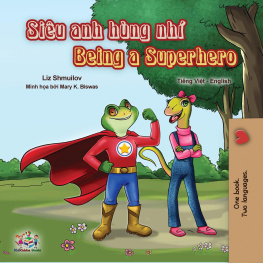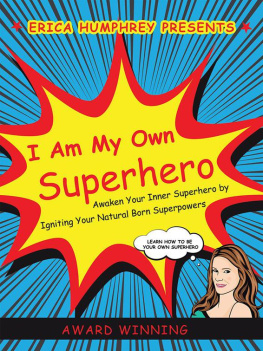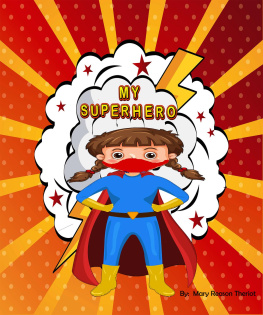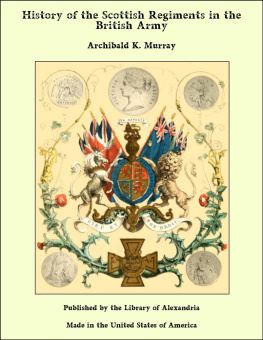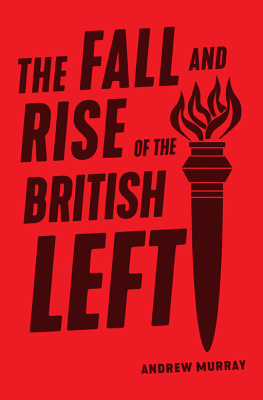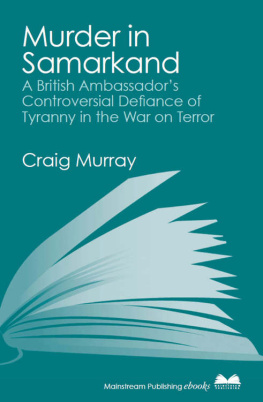www.upress.state.ms.us
The University Press of Mississippi is a member of the Association of American University Presses.
Copyright 2017 by University Press of Mississippi
All rights reserved
Manufactured in the United States of America
First printing 2017
Library of Congress Cataloging-in-Publication Data
Names: Murray, Christopher, 1975 author.
Title: The British superhero / Chris Murray.
Description: Jackson : University Press of Mississippi, 2017. | Includes bibliographical references and index.
Identifiers: LCCN 2016030090 (print) | LCCN 2016042247 (ebook) | ISBN 9781496807373 (hardback) | ISBN 9781496807380 (epub single) | ISBN 9781496807397 (epub institutional) | ISBN 9781496807403 (pdf single) | ISBN 9781496807410 (pdf institutional)
Subjects: LCSH: Comic books, strips, etc.Great BritainHistory and criticism. | Comic books, strips, etc.Social aspectsGreat BritainHistory. | Superheroes in literature. | BISAC: SOCIAL SCIENCE / Popular Culture. | LITERARY CRITICISM / Comics & Graphic Novels. | HISTORY / Europe / Great Britain.
Classification: LCC PN6735 .M87 2017 (print) | LCC PN6735 (ebook) | DDC 741.5/941dc23
LC record available at https://lccn.loc.gov/2016030090
British Library Cataloging-in-Publication Data available
ACKNOWLEDGMENTS
No project like this is completed without the support of a great many individuals. Special thanks must go to friends and colleagues at the University of Dundee: Brian Hoyle, Phillip Vaughan, Keith Williams (who took an aspiring young comics scholar under his wing many years ago), Laura Findlay, Jennifer Barnes, Jo George, Nicole Deveranne, Matthew Jarron, Ana Salzberg, Daniel Cook, Jennifer Byers, Daria Wall, Jim Stewart, Claire Milne, and Mayra Crowe. A great deal is owed to my Deans, David Finkelstein and Jim Livesey, who have been hugely supportive over the years. I am incredibly indebted to my students, who continue to inspire me with their passion and talents: Norrie Millar, Damon Herd, Stephen ODonnell, Calum Laird, Hannah Rose, William Grady, Kelly Kanayama, Rebecca Horner, Megan Sinclair, Callum Paterson, Adleen El-Ammar, Rossi Gifford, Elliot Balson, Letty Wilson, Madeline Gangnes, Erin Keepers, Jessica Burton, and Claire Roe. Many thanks also to the staff at the University Press of Mississippi, especially Vijay Shah, Katie Keene, and Lisa McMurtray, who showed great patience during the delays that came with accepting the mantle of parenthood.
In the course of writing this book, I have met and corresponded with many fellow comics historians, scholars, and creators, notably Peter Hansen, Lew Stringer, Terry Hooper, John McShane, Grant and Kristan Morrison, Frank Quitely, John and Clare Ferguson, Alex Ronald, John Lees, Roger Sabin, Billy Grove, Joan Ormrod, Mel Gibson, Dave Huxley, Dave Gibbons, Cam Kennedy, Monty Nero, Ken Fudge, Ian Kennedy, and Dan McDaid. Thanks also to DC Thomson staff, including Dan McGachey, Mike Stirling, David Powell, and especially Morris Heggie, to whom I owe many a pint. Massive thanks to my partner in crime and fellow editor of Studies in Comics, Julia Round. Thanks are also due to the British Film Institute, whose staff was enormously helpful on my trips to the Denis Gifford Collection, and the Carnegie Trust, whose support made possible several vital research trips. Also, George Corderio, proprietor of Dundees Black Hole comic shop, and for my money the most important man in Dundee. Finally, I must acknowledge the tremendous support of my family: my wife Gill and my daughter Kaitlyn, my mother Marlyn, my sister Tracy, and my brother Gavin, as well as Lisa, Gary, Alistair, Alison, Claire, Jessica, and Emily-Rose. Special thanks go to my father Chris and my uncles Stuart, Dougie, and Alastair, who gave me my first comics all those years ago.
Professor Chris Murray
Dundee, Scotland
THE BRITISH SUPERHEROINTRODUCTION
The idea of the British superhero is often considered to be a contradiction in terms. Superheroes belong to America. They soar between the skyscrapers of the great American cities, both real and imagined, from New York to Metropolis, Chicago to Gotham. They represent the ideals of truth, Justice, and the American Way. Moreover, while superheroes are popular all over the world, nowhere is the association between the genre and the comics medium as close as it is in America. However, the origins of the superhero run deep and come from many different sources. America may be the world leader in terms of the production of superhero comics, but superheroes have appeared in a great many countries around the world. Many of these international superheroes owe much to American characters like Superman and Batman, but there are also fascinating and quite different variations on the superhero in each of these countries. Rather than being the product of political and cultural hegemony, superheroes have emerged from a range of national contexts and have become a transnational phenomenon across a range of media. Indeed, as editors Shane Denson, Christina Meyer, and Daniel Stein point out in the introduction to their book Transnational Perspectives on Graphic Narratives (2013), comics and other forms of graphic narrative are predisposed towards crossing national borders and cultural boundaries because of their unique visual-verbal interface that seems to translate more readilythough not without transformation and distortionacross cultures than do monomedial forms of literature, nonnarrative artworks, or even such visual narrative media as film.
Whereas American superheroes have often been patriotic and emblems of traditional wholesome values (themselves bound up in a complex mythology and discourse of national identity), British superheroes, or American superhero comics created by British creators, have often worked against the assumptions and conventions of the genre, forming a countertradition This mutation is partly based on differences in cultural and industrial contexts, differing attitudes toward power and authority, and the fact that there is a particularly strong history of satire and parody in British comics that can be traced back through Ally Sloper comics and the prints and cartoons produced by Hogarth, Gillray, and Rowlandson. When British creators have produced superhero stories, the best ones have offered something more than a pale imitation of the American model, often in the form of parody, mixing the heroic adventure narrative with humor, or undermining it somehow. This book will explore the nature of British superheroes and consider the place of the genre within British comics history and the ways in which these comics have offered a commentary on the American superhero. It argues that the superhero genre is a blend of several influences and that in British comics these influences were often quite different from those in America. This resulted in some alternate approaches to the figure of the superhero, which has produced some of the oddness to which Gibbons refers.




